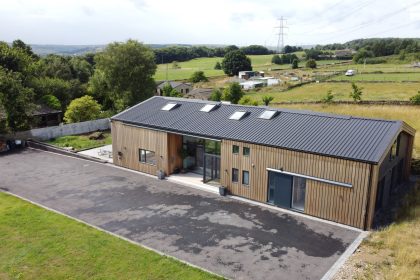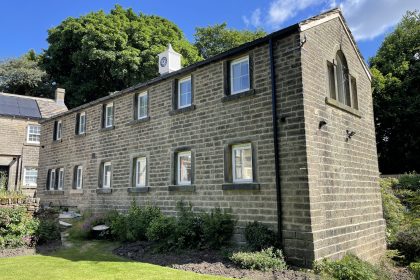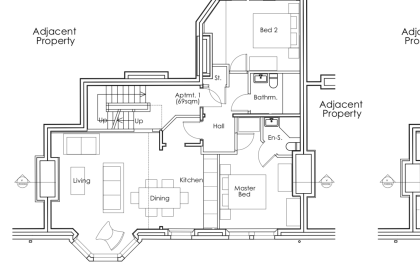Property development covers a wide area of land & property and can include projects such as splitting houses into flats, turning a commercial property into a residential property or even vice versa, as well as new-build developments in almost all sectors.
We’ve put together a few suggestions for you to consider >
Get your power team at the ready
Find people who are reliable but also who you enjoy working with – important people you’ll need include a good accountant, architect, builder and conveyancer.
Good places to find your perfect fit are through recommendations or even on social media. Research their previous experience and projects delivered.
Budget
It has to generate added value to make money – or there’s no point. Your development is not your home and you need to stick to your budgets. Remember that time is money and it’s easy to under estimate time and have contingency plans in place. Have a program and update it regularly.
Location
It might be ideal to choose a local patch – somewhere you walk and drive all the time. Get to know it really well: what’s for sale, what’s recently sold, property price per square foot, house price and demand in the area. Or take advice from experts.
Do your research
Buying your development in the right area is fundamental to sales success. You should consider the following >
- Local schools
- Employment opportunities
- Parking facilities
- Transport links
- Leisure facilities
- Market conditions/desirability
If you are looking to build or develop a property considerably, you should also look at >
- Listed building or Conservation Area status
- Restrictive Covenants and Rights of Light issues
- Recent local planning applications and results
- Local authority searches
- Water drainage searches
- Environmental searches
Ups and downs
Be ready for the ride. There are highs and lows in the property industry. It can be very rewarding but also very risky. Have a back-up plan if issues arise.
Hidden costs
Things to be aware of include >
- Cashflow / borrowing costs
- Waste and skips
- The construction industry scheme – if you’re paying contractors, you’re subject to tax on the labour
- Capital gains tax, tax on profits along with other taxes
- Legal costs / additional consultants costs
- Materials wastage – particularly when using reclaimed materials
- Service connections
- Site office and lock-up facilities
- Lenders’ valuation and survey fees
- Stamp duty and Land Registry fees
- Non-recoverable VAT on some purchases including equipment hire and delivery charges
Overall, we recommend that you seek experienced advice before embarking on a new project or development.
Here at Fibre Architects, we’re more than happy to give you some initial advice on prospective plots or property. Give us a call or drop us an email – we’d love to help.







